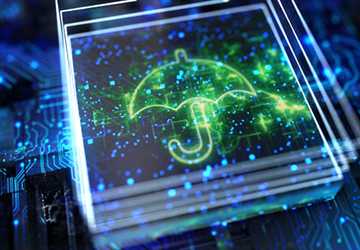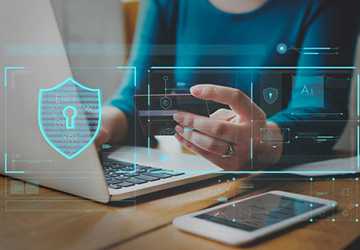4 Cybersecurity Measures to Protect Your Online Identity
Do you feel like your online identity is at risk? With data breaches and online fraud on the rise, protecting your personal information online has never been more critical.
They trust companies with sensitive information, from email addresses to credit card numbers, but online companies seem a bit hard to understand.
Heartbreaking headlines announce another major company suffering a devastating breach, putting millions of people's data at risk. It's enough to make you want to quit the internet altogether!
Before we go to such extremes, let's look at how to protect your online identity better. Simply taking a few reasonable precautions can significantly reduce your sensitivity.
Are you ready to explore these effective cybersecurity measures to protect your online identity and data?
So let's get started!

Why is it essential to protect your online self?
Having your identity stolen can threaten convenience, financial loss, or security risk. Victims spend countless frustrating hours trying to prove who they are and repair the damage caused by the thieves' activities.
For the most sophisticated hacks, discovering a vulnerability takes an average of nine months. Criminals have ample time to use stolen data to make illegal purchases and commit fraud.
Imagine thousands of charges being charged to a bank account or a brand new credit card issued in your name and already maxed out.
Losing control of sensitive information puts you at the mercy of the recipient. Once a hacker obtains medical records, Social Security numbers, or login credentials, it isn't easy to reverse the disclosure.
While staying vigilant takes effort, you can significantly reduce your vulnerability to attackers. Let's explore possible technologies to patrol the gates through which they enter.
Strengthen network self-defence
Our online identities and personal data are valuable. Hackers and companies want to access it without our consent.
Your protection protects us from fraud, theft and abuse. Protecting our online selves online protects our privacy in an exposed digital world.
Don't panic, and don't fall into overwhelming failure! Following four necessary precautions will strengthen your defences against illegal intrusions in the digital world.
Consider implementing security measures, such as adding another deadbolt to your front door.
1. Use strong passwords
A hack starts with an attacker gaining access to your checking account by guessing a weak password. The thinner the lock, the easier it is to break. Prioritize creating stronger passwords to reduce this risk.
● Length, not complexity, makes a password effective. Aim for 12-14 random characters.
● Use a password manager to generate and store unique codes for each account.
● Enable two-factor authentication to provide secondary proof of your identity.
Adopting these simple habits will go a long way toward preventing unauthorized access to your online self.
2. Update equipment and software
Programmers continually improve security features in system updates. However, if patches are not installed regularly, vulnerabilities can appear that criminals can penetrate. Therefore, devices and software should be set up to apply the latest upgrades automatically.
You can stay current on the most secure iterations and better seal any flaws that hackers exploit.
While rebooting your device occasionally can be inconvenient, it's far less of an issue than dealing with leaked information!
3. Limit information sharing
Be cautious when posting personal information publicly on social media or business websites: the more facts you have, the easier it is for thieves to solve the mystery of your identity.
Use caution with images that contain identifiable locations in the background or metadata. Critically evaluate privacy policies to understand how companies share your data.

4. Use security tools
Protection software provides valuable assistance in monitoring suspicious network activity. Antivirus and anti-malware applications warn about and block known threats.
A Virtual Private Network encrypts your internet connection to protect browsing from prying eyes. Password managers detect weak passwords, and identity theft services warn users of possible misuse of credentials.
Is it worth the effort to protect your identity?
Absolutely! Three out of four people are now affected by a data breach, which means there's a good chance your identity has been compromised at some point. Don't you prefer prevention to trying to control damage?
Hackers are not going away anytime soon. They actively search for vulnerabilities to gain access to things they are not using illegally.
Do not share sensitive information without taking appropriate precautions. The steps above can help you regain control of your online life.
Strengthening the online security dimension does not eliminate the risk of compromise but restores a sense of control.
Take action now before statistics reveal the harrowing consequences of identity theft. A few strict habits will limit unauthorized access, making the most valuable parts of your online self more secure.